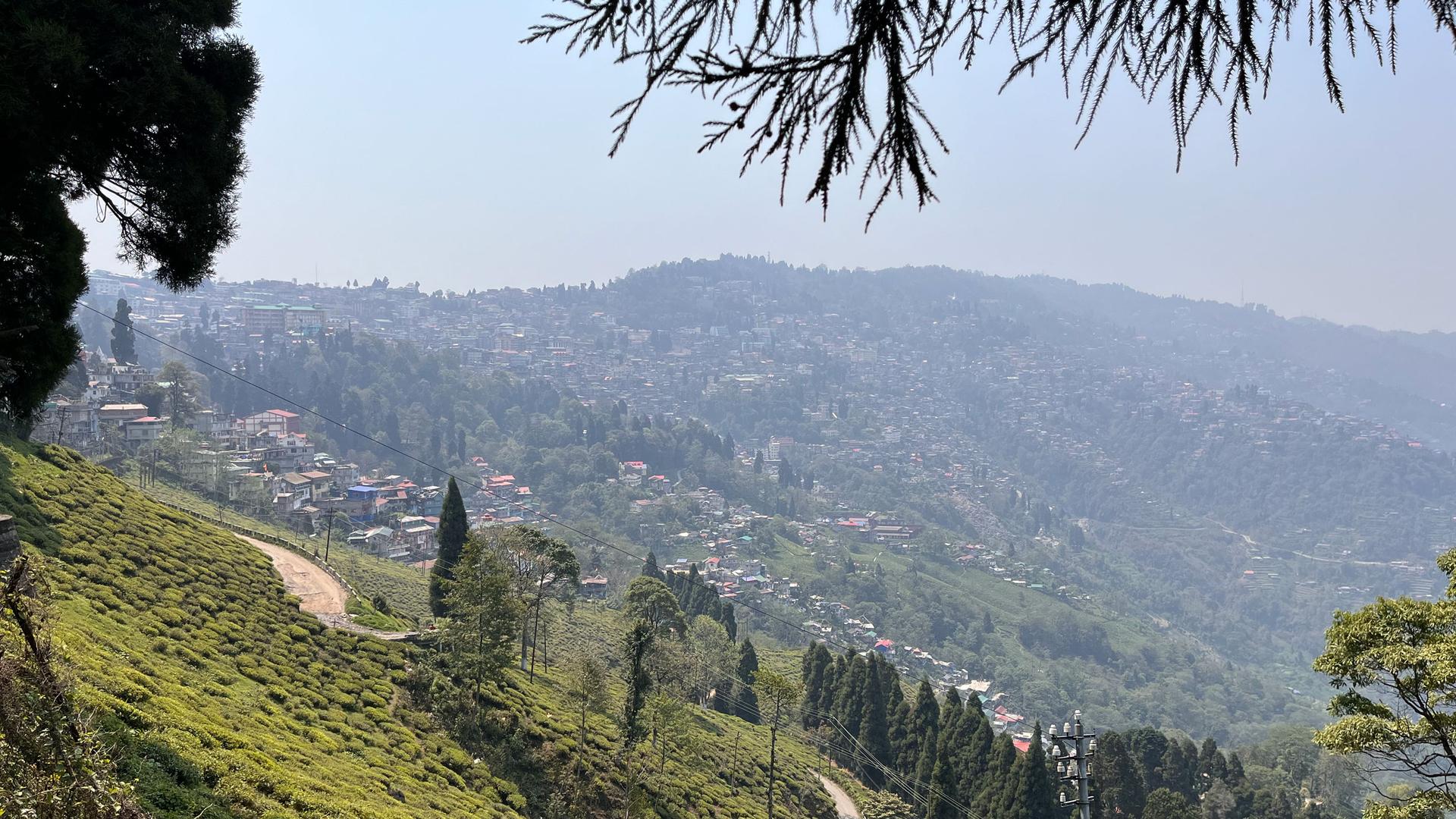On a recent morning in Darjeeling, nestled amid lush tea gardens overlooking the snow-capped Himalayas in India’s northeast, the mood was anything but tranquil amid election season in India.
The government college has been transformed into an election distribution center abuzz with activity. Loudspeaker announcements played in the background as poll workers streamed into the center to register and receive their assignments and equipment.

The poll workers were equipped with backpacks reminiscent of trekkers due to the hilly terrain they navigate as they register others to vote.

India is in the middle of a consequential general election that will decide the country’s next prime minister. With nearly a billion voters and more than a million polling stations, the democratic exercise currently underway in India is the largest in the world.
But conducting a free and fair election of this scale in a vast and geographically diverse country such as India is a major logistical endeavor that requires meticulous planning and coordination.
“It is gargantuan, it is incredible, but it is satisfying,” said Ashok Lavasa, who oversaw India’s previous election in 2019.
No voter left behind
Sushant Bharati is one of the millions of election personnel deployed across the country.
As he waited to receive polling materials, he described the journey ahead—a short car trip followed by a 2-mile climb uphill while hauling electronic voting machines, paperwork and other polling materials.

This journey underscores the logistical challenges faced in ensuring that no voter is more than 1.25 miles away from a polling station, as Indian guidelines stipulate. In some remote areas, entire polling stations are established for just a handful of voters, requiring arduous treks or unconventional transportation methods.

Poll workers assigned to the three most challenging voting stations in the Darjeeling district leave two days in advance and trek as much as 10 miles through rhododendron forests. And in the western Indian state of Gujarat, an entire polling station is set up deep in the Gir forest, home to Asiatic lions, just to accommodate one voter.

“There are multiple challenges … taking polling personnel and equipment by boat, sometimes on elephant backs,” said Lavasa, the former election commissioner. “There are polling stations where we have to airdrop our polling officials.”
A lengthy affair
Members of India’s central armed police force accompany the polling personnel and are tasked with maintaining law and order throughout the electoral process.
“When you mobilize a force of this nature which has to be deployed in a million polling stations, [the] quantum of force available, that becomes a bottleneck,” Lavasa said.
The election is usually spread across multiple weeks to give security forces enough time to move between locations. The Election Commission of India must also consider other factors impacting the voting schedule, such as local festivals or school examinations.

Indian elections have always been lengthy affairs. The first general election, in 1952, took place over 68 phases and lasted about four months. This time, the voting is taking place over seven phases in six weeks.
Some opposition members say the costs involved in stretching out the campaign puts them at a disadvantage compared to Prime Minister Narendra Modi, whose political party is the wealthiest in the country. While the prolonged election period may pose challenges, however, the Election Commission of India maintains that it is necessary.
“It is our promise to deliver a national election in a manner that will add to our global shine and remain a beacon for electoral democracies across the world,” Chief Election Commissioner Rajiv Kumar said at a press conference in March.
Kumar outlined several formidable challenges: controlling violence, illegal political expenditure, and misinformation. The commission deploys surveillance teams to nab cash, liquor and other freebies that could be used to bribe voters.
More than 2,000 election observers will monitor the polls this year to ensure a level playing field.
“Every election is a new test and failure is not an option,” Kumar said.
Lavasa, the former election commissioner, said these dedicated individuals view their roles in the electoral process as “a sacred duty toward the constitution.”
As the poll workers in Darjeeling conducted final checks on their voting equipment and paperwork, they seemed well aware of the enormous responsibility on their shoulders.
Poll worker Rajesh Rai said he was assigned to a remote area where he heard the roads are bad.
“I am a bit anxious, but we have to take the risk and go,” he said.
India’s final voting day is slated for June 1, with results expected on June 4.
